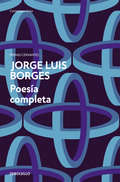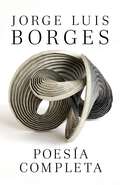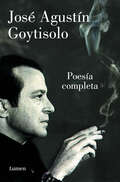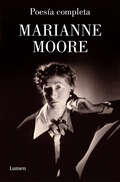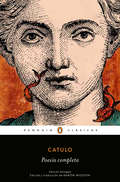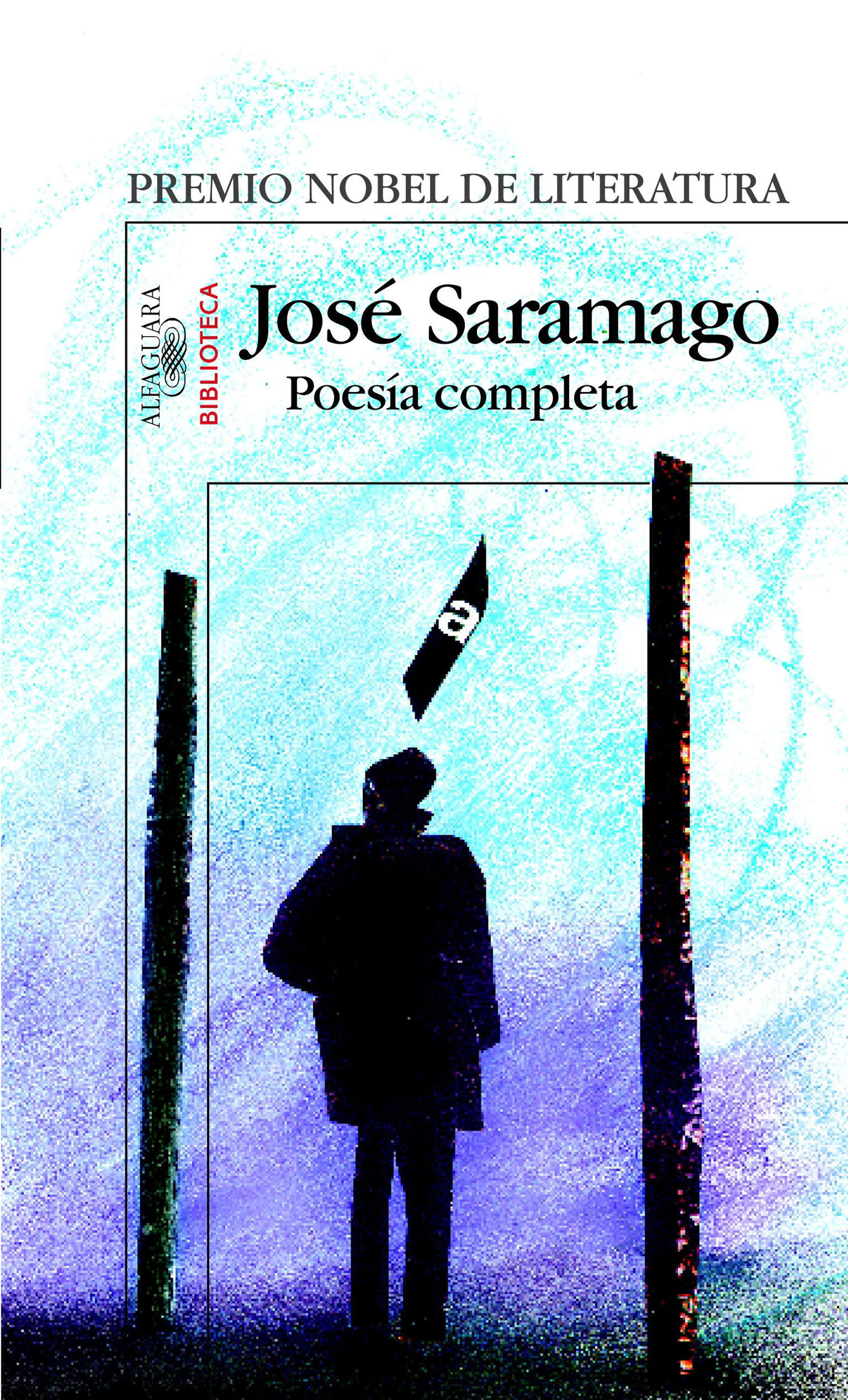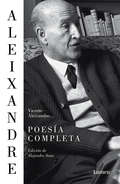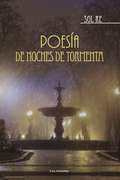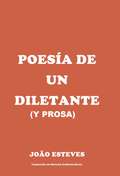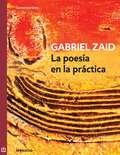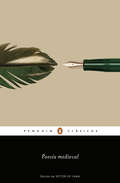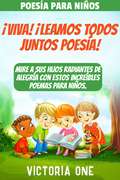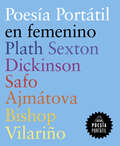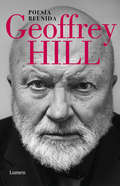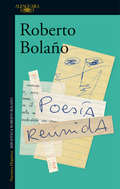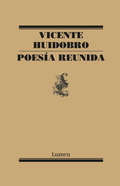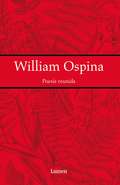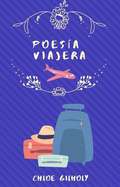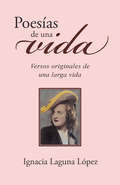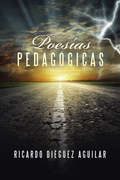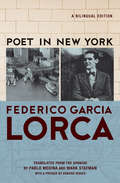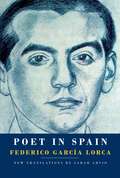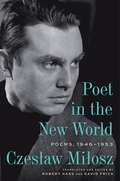- Table View
- List View
Poesía completa
by Jorge Luis BorgesToda la poesía de Borges en un solo volumen. Además de extraordinario narrador y ensayista, Borges fue un excelente poeta. De hecho, puede decirse que la poesía es el alma de su obra. Indisociables de sus cuentos y ensayos, estos poemas son parte indispensable del universo borgiano y constituyen una indagación paralela a los temas que siempre le apasionaron: los libros, la memoria, los laberintos, los espejos, Inglaterra, el amor o la eternidad. Dueño de un fino oído y una deslumbrante capacidad para crear imágenes memorables, Borges revive en sus grandes poemas la intensidad que recorre la gran tradición occidental desde Homero hasta Eliot. Antes que el sueño (o el terror) tejiera mitologías y cosmogonías, antes que el tiempo se acuñara en días, el mar, el siempre mar, ya estaba y era. ¿Quién es el mar? ¿Quién es aquel violento y antiguo ser que roe los pilares de la tierra y es uno y muchos maresy abismo y resplandor y azar y viento? Quien lo mira lo ve por vez primera, siempre. Con el asombro que las cosas elementales dejan, las hermosas tardes, la luna, el fuego de una hoguera. ¿Quién es el mar, quién soy? Lo sabré el día ulterior que sucede a la agonía. Reseña:«Borges es mejor poeta que narrador. Su obra completa en verso ha sido editada en un tomo maravilloso y sin desperdicio, en el que no podía faltar el poema que inicia con el endecasílabo más perfecto de la historia de la literatura en nuestro idioma: "ya no seré feliz. Tal vez no importa".»Benjamín Prado, La Ventana (Cadena SER)
Poesía completa
by Jorge Luis BorgesLa obra poética completa del maestro argentino en un solo volumen Además de extraordinario narrador y ensayista, Jorge Luis Borges fue un excelente poeta. De hecho, puede decirse que la poesía es el alma de su obra. Indisociable de sus cuentos y ensayos, estos poemas son parte indispensable del universo borgiano y constituyen una indagación paralela a los asuntos que siempre le apasionaron: los libros, la memoria, los laberintos, los espejos, el amor o la eternidad. De los poemas que integran esta fantástica colección cabe destacar El mar, Arte poética, El laberinto, Límites y su primer libro de poesía Fervor de Buenos Aires, entre otros muchos. Dueño de un fino oído y una impresionante capacidad para crear imágenes memorables, Borges revive en sus grandes poemas la intensidad que recorre la gran tradición occidental desde Homero hasta Eliot. En palabras del propio Borges: Ajedrez misterioso la poesía, cuyo tablero y cuyas piezas cambian como en un sueño y sobre el cual me inclinaré después de haber muerto. La deuda que tenemos contraída con él quienes escribimos en español es enorme. Mario Vargas Llosa
Poesía completa
by José Agustín GoytisoloPor primera vez, la obra completa de uno de los grandes poetas españoles del siglo XX. «Un poeta prolífico cuya obra es una especie de palimpsesto. [...] Somos muchos los que sentimos a Goytisolo como nuestro.»Carme Riera «Uno de los grandes poetas de nuestra lengua. [...] No fue un sermoneador, no confundió creación con consigna, sino que trabajó al servicio de su propia ética.»Luis García Montero José Agustín Goytisolo es sin duda uno de los grandes poetas españoles del siglo XX, además de uno de los más populares, leídos y musicados de su generación. En su obra, a lo largo del tiempo, se ensayan distintas tonalidades, desde la ironía y la crítica social hasta el intimismo, la poesía amorosa, el canto urbano, el poema civil, la sordina moral y la parodia. Miembro del llamado grupopoético del 50, Goytisolo fue uno de los poetas más versátiles, agudos y memorables de su tiempo. Se reúne aquí por primera vez su poesía completa, en una rigurosa edición al cuidado de Carme Riera y Ramón García Mateos, que incorpora al final un aparato crítico con todas las variantes establecidas por el autor en las sucesivas revisiones de su obra. Hoy como ayer, la palabra de José Agustín Goytisolo resuena con toda la intensidad, la emoción y el fulgor que tan sólo poseen los verdaderamente grandes. La crítica ha dicho:«José Agustín usaba su nombre de poeta conocido para llamar la atención sobre escritores que sin él ni sonarían a los lectores de fuera de Cataluña. Lo importante que fue lo vemos ahora que no está y que casi te tienen que traducir los amigos.»Joan Margarit «No sólo es uno de los poetas españoles más importantes de la segunda mitad de este siglo, sino una de las mejores personas que he tenido la oportunidad de conocer en esta vida.»Manuel Vázquez Montalbán «Los versos de Goytisolo definían un estado de ánimo bien conocido, esa entrada al mundo adulto que simultáneamente anhelábamos y temíamos. Nuestro también era su imposible deseo.»Alberto Manguel «Un notable escritor anónimo, pues. Elegiaco y satírico. Muy urbanita y contemporáneo y muy medieval.»Javier Rodríguez Marcos, El País «Quiso demostrar la fuerza -invencible, poderosa- de la palabra.»Eva Belmonte, El Mundo «Con un lenguaje llano, alternó versos urbanos y casi de combate con poemas de un sentimiento muy cercano a la gente de la calle.»Xavier Moret, El País «Cierto que es popular y también es más desconocida de lo que se cree la complejidad de su poesía.»Andreu Jaume «Me parecían poemas de otra persona, escritos como para ser cantados o hechos cantando. [...] José Agustín tenía mucha chispa y mucho sentido del ritmo del espectáculo.»Ibáñez «Para llegar a la gente que gusta de la poesía, José Agustín Goytisolo no baja nunca el tono de su calidad literaria. sino que afina su pluma para alcanzar una dificilísima sencillez de estilo y una transparencia de lenguaje que muy pocos poeta son capaces de conseguir. Por eso gusta a personas de toda condición social y de cualquier edad, y también a los críticos literarios más exigentes y a un público muy cultivado intelectualmente, y se siente feliz legándoles sus poemas, para que los consideren como propios.»María Dolores Fernández Lucio «La contención en el decir, la voluntad transitiva y el empaque moral caracterizan la poesía de Goytisolo, [...] de un rigor y una minucia extremos.»Eduardo Moga, Revista de Libros «No hay ningún otro poeta con tantas canciones.»Asunción Carandell «Un cazador y recolector. Un recolector de palabras.»Julia Goytisolo, Cadena SER «El compromiso social y la lírica de su lenguaje hicieron de la obra de Jo
Poesía completa
by Marianne MooreLa poeta norteamericana más radical junto a Emily Dickinson, ganadora del Premio Pulitzer y del National Book Award. «Una poeta de poetas».Jaime Gil de Biedma «Marianne Moore se enfrentó a los convencionalismos lingüísticos, sintácticosy temáticos de lo que Gertrude Stein llamó la "poesía patriarcal". Y cabría añadir: salió victoriosa».Elaine Showalter 50º ANIVERSARIOVersión de Olivia de Miguel, merecedora del Premio Nacional de Traducción En la poesía del siglo XX, el nombre de Marianne Moore ocupa un lugar esencial. Quizá sea, después de Emily Dickinson, la poeta más radical que han dado las letras norteamericanas.Compañera de generación de Wallace Stevens o de William Carlos Williams, Moore logró crear un universo poético, tanto en el fondo como en la forma, muy distinto a lo que hasta entonces se había hecho. Poeta del mundo natural, muy poco dada al tono confesional, su poesía nace en el imaginismo de su generación y desemboca en el alumbramiento de una poesía construida con imágenes y símbolos de una belleza pura. La crítica ha dicho:«La poeta más radical de las letras norteamericanas. Una poesía repleta de imágenes que son pura belleza.»Greta H. Quiroga, Harper's Bazaar «Una experiencia que no deja indiferente, una apuesta por lo inesperado.»Ernest Farrés, La Vanguardia «Una poesía que no puede leerse sin el sobresalto, hondo y rico, de una singularidad excepcional.»Luis Antonio de Villena«Marianne Moore fue la más importante de los modernistas estadounidenses; reescribió las reglas de la forma literaria.»Declan Kiberd «Ironía, agudeza, meticulosidad, precisión verbal..., se integran en el universo poético de Moore.»Jorge de Arco, Piedra del Molino«Un ritmo de intensidad lírica sumamente prometedor y sincero.»Cándido Pérez Gállego «Una poeta de poetas.»Jaime Gil de Biedma «Marianne Moore se enfrentó a los convencionalismos lingüísticos, sintácticos y temáticos de lo que Stein llamó la “poesía patriarcal”. Y cabría añadir: salió victoriosa.»Elaine Showalter«Una transgresora en toda regla, como sus contemporáneas H. D. y Amy Lowell. [...] Propuesta métrica renovadora, exuberancia discursiva, versos desconcertantes que fluyen en estructuras rítmicas completamente inéditas hasta esa fecha...»Mª Ángeles Cabré, Letras Libres
Poesía completa
by Pedro Bonifacio PalaciosAutodidacta, solitario, magnánimo, urgido por problemas económicos, la vida de Almafuerte fue una lucha constante. Fiel reflejo de su personalidad visionaria, su poesía alcanzó resonancia por la fuerza y autenticidad de sus versos. De sus letras, teñidas de personalidad y rebeldía se desprende un tono moralizante y profético que, entre otros rasgos, lo acerca al poeta norteamericano Walt Whitman, Con la lectura de sus poesías, evangélicas y discursos, el lector podrá redescubrir el estilo ?inconfundible a inimitable?. la personalidad y el espíritu de lucha de unas de las figuras fundamentales de la literatura argentina. "No te des vencido ni aun vencido, no lo sientas esclavo, ni aun esclavo, trémulo de pavor, piénsate bravo, y arremete feróz, ya mal herido." .
Poesía completa (edición bilingüe)
by CatuloLos poemas completos de Catulo en edición bilingüe y una nueva traducción a manos de Ramón Irigoyen. «Odio y amo. Quizá preguntas por qué lo hago.No lo sé, pero siento que es así y me torturo.» El trío de geniales poetas latinos formado por Virgilio, Horacio y Ovidio ha marcado a docenas de poetas occidentales a lo largo de la historia. No obstante, a Catulo le corresponde este reinado en el siglo XX. Esta época, marcada por las guerras pero también por la eclosión de las vanguardias, estaba predestinada a un poeta salvaje como Catulo. El poeta de Verona amó y odió como millones de personas odiamos y amamos o, si se prefiere, amamos y odiamos (por este orden más o menos simultáneo). La magnífica versión de Ramón Irigoyen acerca al lector al amor y al odio visceral de Catulo, pero también a la alegría, la desesperación en el sexo, la tristeza terrible y el humor sublime en todas las gamas de este refinamiento de la inteligencia y el más exquisito perfeccionismo formal. ¿Cuántos millones de carcajadas y de sonrisas le debe el mundo occidental de los últimos veinte siglos a Catulo?
Poesía completa de Saramago
by José SaramagoToda la poesía de José Saramago recogida en un solo tomo. Cerremos esta puerta. Lentas, despacio, que nuestras ropas caigan Como de sí mismos se desnudarían dioses. Y nosotros lo somos, aunque humanos.JOSÉ SARAMAGO
Poesía completa: Edición de Alejandro Sanz
by Vicente AleixandreCuando se cumplen cuarenta años de la concesión del Premio Nobel de Literatura a Vicente Aleixandre, publicamos una nueva edición de su poesía completa, al cuidado de Alejandro Sanz, máximo especialista en su obra. «Cuerpo feliz que fluye entre mis manos,rostro amado donde contemplo el mundo,donde graciosos pájaros se copian fugitivos,volando a la región donde nada se olvida.» Vicente Aleixandre es el poeta del amor, de la contemplación y del conocimiento. Su poesía es irreductible e incomparable y su lectura constituye una experiencia única, llena de iluminaciones. Alejandro Sanz nos ofrece en este libro la disposición definitiva del canon de Aleixandre, que queda completado con material inédito. Tenemos así la oportunidad de calibrar la verdadera dimensión de uno de los poetas más originales e influyentes del siglo XX hispánico, miembro de la generación del 27 y mentor de varias generaciones de poetas. Con este volumen, Aleixandre entre en el siglo XXI. Reseñas:«Fue el primer poeta que me llevó a escribir y por fin siento que voy a leerlo bien, completo. [...] Abre una puerta de mi cerebro que otros autores de su generación no han logrado abrir.»Luna Miguel, declaraciones a ABC «En los siete poemas inéditos hay ausencia, vacío, silencio... El hombre, excluido del amor, parece no existir, y no hay más realidad que la mentira. Así veía entonces Vicente Aleixandre el mundo, y así lo cantó, hasta dar forma al gran poemario del desamor. [...] Sus versos eran -lo son- un canto exaltado del amor y la juventud plena.»Inés Martín Rodrigo, ABC
Poesía de noches de tormenta
by Sol ReA veces lloramos tanto que provocamos tormentas. <P><P>Poesía de noches de tormenta es un poemario para las personas que piensan demasiado mientras pasan las noches en vela, con miedos, que no encajan en este mundo, que les ha hecho daño la vida y el amor, pero que nunca pierden la esperanza.
Poesía de un diletante (y prosa)
by joao batista esteves alves Marcela Gutiérrez Bravo y João EstevesLa poesía de João Esteves ya se declara diletante de entrada, en el título, pero llega a momentos que parecen desmentir tal adjetivo. Su prosa, fluída y casual, proporciona lo que, declaradamente, el autor pretende: entretenimiento literario.
Poesía en la práctica
by Gabriel ZaidHay que ver la poesía en la práctica: en el mundo del trabajo y los negocios, del prestigio social y el poder político, de la ingeniería y las computadoras, de la vida amorosa y cotidiana. La inspiración creadora no sólo hace versos: sopla y lo mueve todo. En ese movimiento, la práctica no es algo estrecho, mecánico y sin misterio, sino creación; y la poesía es práctica: hace más habitable el mundo. La argumentación rigurosa y elegante de Zaid hace ver la naturaleza del acto creador. Éste es un ensayo estimulante cuya lectura nos vuelve conscientes, de una manera curiosamente personal, de los procesos a los cuales se refiere. Zaid tiene una mente original y una profunda convicción en la normalidad de la experiencia artística. Deja con ganas de ver más de su obra. The Times Literary Supplement,14 de noviembre de 1968.
Poesía medieval
by Varios AutoresLos mejores libros jamás escritos. «Qué gran aleve hizieronmis ojos y qué traición:por una vista que os vieronvenderos mi coraçón.»Jorge Manrique Desde el hispanolatino Cancionero de Ripoll hasta la obra de Juan de Mena, el marqués de Santillana o Juan del Encina, pasando por las jarchas, la lírica gallego-portuguesa o catalano-provenzal (cuyo más excelso representante es Ausiàs March) y las obras del mester de juglaría y el mester de clerecía, esta antología recoge lo más significativo de la poesía peninsular de esa larga etapa histórica. A cargo del profesor Víctor de Lama, el cuidado en la selección y el rigor en los criterios aplicados hacen de esta antología la mejor muestra de la poesía escrita en la Edad Media y un instrumento insustituible para su cabal conocimiento.
Poesía para niños
by Victoria OneEl siguiente libro se produce continuación con el objetivo de proporcionar información lo mas precisa y confiable posible.
Poesía portátil en femenino (Plath | Sexton | Dickinson | Pizarnik | Safo | Ajmátova | Bishop | Vilariño)
by Emily Dickinson Anne Sexton Sylvia PlathEl nuevo estuche de Poesía Portátil que recoge la selección de siete voces femeninas esenciales de la poesía. Esta recopilación abarca la urgencia lírica de siete poetas: los versos de la rusa Anna Ajmátova, sometida al terror más feroz durante el estalinismo, o la intensidad, el dolor y la belleza de las implacables composiciones de Sylvia Plath; pasando por los textos de Emily Dickinson, desprovistos de adornos y reglas que hablan de la mujer, de la enfermedad y de la muerte o una traducción inédita de algunos de los escasos textos que se conservan de la poeta griega Safo. Se recogen, además, los versos más icónicos de Elisabeth Bishop, Anne Sexton y la imponente Idea Vilariño, tres poetas clave en la poesía norteamericana y latinoamericana del siglo XX.
Poesía reunida
by Geoffrey HillPor primera vez en castellano, la poesía reunida del último gran poeta inglés. «El poeta más potente de nuestra época.»Harold Bloom Geoffrey Hill es el poeta inglés más ambicioso de la segunda mitad del siglo XX, comparable a Ted Hughes e incluso a W. H. Auden y a T. S. Eliot, cuyo trabajo con la lengua y la tradición continúa con una radicalidad extrema. Su poesía aborda cuestiones como la religión, la historia ancestral de Inglaterra -sobre todo en sus Himnos de Mercia, uno de sus libros más celebrados e influyentes-, la resistencia que la lírica ha ejercido contra el totalitarismo en el siglo XX, la guerra o el propio lenguaje. Editada y traducida por Andreu Jaume, esta es la primera gran recopilación que se publica en español de los poemas de quien fue, según Harold Bloom, «el poeta más potente de nuestra época». La crítica ha dicho...«La altura crítica y poética de Geoffrey Hill es la de los grandes del siglo XX.»George Steiner «El mejor escritor en inglés de nuestros días, ya sea en prosa o en poesía.»Christopher Ricks «La poesía fuerte es siempre difícil, y Geoffrey Hill es el poeta británico más fuerte de cuantos hoy viven, aunque su reputación en el mundo angloparlante sea ligeramente inferior a la de varios de sus contemporáneos. Debería ser leído y estudiado durante muchas generaciones después de que estos contemporáneos hayan difuminado sus rasgos, lo mismo que debería sobrevivir a todos salvo un puñado (o menos) de los poetas americanos hoy en activo. Esta profecía canónica se basa en la autoridad de su mejor obra, tal como la he experimentado en los quince años transcurridos desde la aparición de Para los no caídos, su primer libro.»Harold Bloom
Poesía reunida
by Roberto BolañoToda la poesía publicada por Roberto Bolaño por primera vez en un solo volumen y en edición revisada. «Escribiendo poesía en el país de los imbéciles. / Escribiendo con mi hijo en las rodillas. / Escribiendo hasta que cae la noche / con un estruendo de los mil demonios. / Los demonios que han de llevarme al infierno, / pero escribiendo.» Roberto Bolaño se sintió siempre, en esencia, un poeta, pese a que el reconocimiento mundial le llegó por su narrativa. Este volumen recoge, además de los publicados en La Universidad Desconocida, Los perros románticos y Tres, más de sesenta poemas que aparecieron en revistas, plaquettes y volúmenes colectivos en sus comienzos literarios y que desde entonces han permanecido inencontrables. En su poesía, ahonda en los temas fundamentales de su literatura: el amor, la muerte, el exilio, la literatura o la política. La economía expresiva, la audacia formal y temática, el vanguardismo, la provocación y la tensión poética convierten a Bolaño en uno de los exponentes más singulares y modernos de la poesía contemporánea en español. «Vio en la poesía una forma de rebeldía y una intriga existencial que engrandecía la vida. Es curioso, porque sin esa apelación a la poesía no se puede entender el conjunto de su obra. Hay poesía escondida en sus novelas y hay novelas interrumpidas en su poesía. Porque todo son palabras. Bolaño buscó aquellas que más dolían o más decían, o más escondían, o más cercanas estaban de lo que el propio Bolaño vivió.» Del prólogo de Manuel Vilas Reseñas:«Para quienes se hayan internado en la narrativa de Bolaño, leer sus poemas puede asemejarse a encontrar lo que está sumergido bajo el agua en sus novelas, cuentos y ensayos. [...] Su poesía completa -hasta cierto punto- y enriquece la lectura de su prosa y viceversa. Hasta cierto punto, ya que la obra de Roberto Bolaño parece ser un vidrio o un espejo destrozado en miles de pedazos y repartidos por diferentes territorios, que unen y separan, completan y deforman (forman) su trabajo.»Gabriel Zanetti «Fue un escritor experimental que inventó formas nuevas y fue una voz muy independiente y muy crítica.»Mario Vargas Llosa «Bolaño ha probado que la literatura lo puede todo.»Jonathan Lethem «Un escritor muy notable, uno de los mejores de su generación.»Jorge Edwards «Uno de los autores más respetados e influyentes de su generación [...]. Al mismo tiempo divertido y, en cierto sentido, intensamente aterrador.»John Banville, The Nation «Su lenguaje vigilante y lleno de gracia, su manera de construir unos textos a la vez desconcertantes, brillantes e infinitamente próximos, es una forma de resistir al mal, a la adversidad, a la mediocridad.»Raphaelle Rerolle, Le Monde «Consigue fácilmente lo que otros escritores apenas han tocado: hablar sobre el destino de las vanguardias estéticas y políticas después del fin de la utopía humana.»Andreas Breitenestein
Poesía reunida
by Vicente HuidobroLa poesía reunida de uno de los más grandes poetas de la lengua. Este libro reúne, íntegros, ocho títulos esenciales de Vicente Huidobro: El espejo de agua, Ecuatorial, Poemas árticos, Altazor, Temblor de cielo, Ver y palpar, El ciudadano del olvido y el póstumo Últimos poemas. Estos libros representan las estaciones o conquistas claves de su intrépida y versátil trayectoria poética, los puntos más altos de un poeta que vivió en movimiento perpetuo y aportó decisivamente a la renovación de la poesía moderna, desde su inicial creacionismo, prolífico en imágenes imborrables, hasta la conmovedora poesía de sus años finales.
Poesía reunida
by William OspinaLa poesía de William Ospina en un solo volumen. La poesía reunida de William Ospina, desde sus poemas tempranos hasta los libros de poemas Hilo de arena, La luna del dragón, El país del viento, ¿Con quién habla Virginia caminando hacia el agua? y África. La crítica ha dicho: "Yo no me imagino de otra manera a William que como poeta, por más que otros libros suyos hayan conquistado un mayor éxito de crítica, el favor del público y hasta los elogios con reservas de alguna que otra gran figura. El poeta en su sentido más radical es lo que campea en todas las páginas que Ospina ha escrito, ya sea la crónica, la novela, el ensayo o algún otro género anfibio que no sabemos bien cómo definir". José María Espinasa "Ospina mezcla con fortuna los géneros, poematiza historias, narra poemas y versifica ensayos, en textos construidos a base de cuidadosas combinaciones métricas, así como de una enunciación pulcra y elegante. Sobre sus textos también se ciernen inmutables presencias metafísicas (el tiempo, la memoria, la muerte) que encarnan en la materia". Luis Jorge Boone "La serena poesía conceptual de William Ospina es un desesperado combate por salvar las cosas más queridas del caos, de la irrealidad, y de ese río que todo lo erosiona, el tiempo". Humberto Marín
Poesía sobre mujeres inspiradoras – Libro VII
by D. S. PaisAl escribir este libro, he tenido muy presente el viaje vital de grandes mujeres que han causado un impacto en el mundo, y lo han cambiado a mejor. Como tributo a estas ilustres mujeres, he dado con lo mejor de mí un paso adelante en la forma de poesía, alabándolas por desafiar las circunstancias alrededor suyo. Mi objetivo es iluminar e inspirar . Incluso las mas excelentes personas enfrentan desafíos, pero los dejan atrás y hacen que se oigan sus voces. He homenajeado a las siguientes mujeres en este libro: Emperatriz Dowager Cixi, Andrea Dworkin, y, Wilma Rudolph
Poesía viajera
by Chloe GilholyDescripción del libro: Poemas inspirados en los largos y difíciles caminos de las aventuras y las vacaciones. Más de treinta poemas inspirados en las alegrías y los placeres de viajar, ya sea alrededor del mundo o en la comodidad del hogar.
Poesías de una vida: Versos originales de una larga vida
by Ignacia Laguna LópezUna vida en verso que leerás con el corazón Este libro es un viaje a lo desconocido hasta el interior de nosotros mismos. La poesía que contiene es Ignacia, su vivir: como ama, sufre, se emociona, como se levanta cuando parece derrotada y triunfa. <P><P>Es pararse a contemplar sentado las inquietudes de una vida. Reflexionar los hechos del pasado y del presente de una historia de interminables esquinas. Ignacia empieza a escribir versos con apenas siete años. Es el regalo que una niña hace a su madre, recién fallecida el 6 de enero de 1935. <p>Ya no podrá parar de expresar sus sentimientos y emociones de la mejor manera posible. Este libro es un hijo criado con ternura y amor que ha ido creciendo poco a poco con los años. Se puede ver que ha madurado, se ha hecho mayor. Los versos se iban sumando en forma de sueños, volaban por la cabeza de su inventora haciéndola cosquillas para salir. <P><P>Así hasta que al fin eran muchos y podían entre todos contar algo, su paso por la vida. Todo estaba allí. Ha tardado 91 años en conseguirlo. Será una huella del pasado de una mujer manchega, que pondrá ilusión en tu presente. Cien poemas con esperanza y amor de Ignacia Laguna López.
Poesías pedagógicas
by Ricardo Diéguez Aguilar¡Es por medio de las palabras maestras, como mejor nos podemos enriquecer y comunicar, ante el aprendizaje que debemos alcanzar en nuestro viaje temporal! <P><P>El motivo principal por el que ha sido creado este libro con tintes filosóficos y trazos poéticos, es para poder tener una herramienta educativa eficiente y eficaz, que nos sirva de libro de consulta. A la hora de definir las respuestas que surgen y emergen, cuando nos ponemos a debatir sobre lo que en realidad significa el fluir o en influir del pensar y del sentir en nuestro crecimiento personal. <P><P>Creando para ello una especie de ciencia de la comunicación, de los sentidos y de las razones, a la que podamos acceder a la hora de enseñar. De enseñar cómo se debe uno expresar, para poder su condición mejorar. Por medio de un aprendizaje, que si lo sabemos aplicar como corresponde, nos puede servir, para poder consolar con palabras comprensibles, sensibles y sabias, el sufrimiento que en ocasiones se genera en el latir, que hay tanto en mí como en los demás.
Poet in New York: A Bilingual Edition
by Pablo Medina Frederico García Lorca"The definitive version of Lorca’s masterpiece, in language that is as alive and molten today as was the original.”-John AshberyNewly translated for the first time in ten years, Federico García Lorca’s Poet in New York is an astonishing depiction of a tumultuous metropolis that changed the course of poetic expression in both Spain and the Americas. Written during Lorca’s nine months at Columbia University at the beginning of the Great Depression, Poet in New York is widely considered one of the most important books Lorca produced. This influential collection portrays a New York City populated with poverty, racism, social turbulence, and solitude-a New York intoxicating in its vitality and beauty. After the tragedy of September 11, 2001, poets Pablo Medina and Mark Statman were struck by how closely this seventy-year-old work spoke to the atmosphere of New York. They were compelled to create a new English version using a contemporary poet’s eye, which upholds Lorca’s surrealistic technique, mesmerizing complexity, and fierce emotion unlike any other translation to date. A defining work of modern literature, Poet in New York is a thrilling exposition of one American city that continues to change our perspective on the world around us.
Poet in Spain
by Sarah Arvio Federico Garcia LorcaFor the first time in a quarter century, a major new volume of translations of the beloved poetry of Federico García Lorca, presented in a beautiful bilingual editionThe fluid and mesmeric lines of these new translations by the award-winning poet Sarah Arvio bring us closer than ever to the talismanic perfection of the great García Lorca. Poet in Spain invokes the "wild, innate, local surrealism" of the Spanish voice, in moonlit poems of love and death set among poplars, rivers, low hills, and high sierras. Arvio's ample and rhythmically rich offering includes, among other essential works, the folkloric yet modernist Gypsy Ballads, the plaintive flamenco Poem of the Cante Jondo, and the turbulent and beautiful Dark Love Sonnets—addressed to Lorca's homosexual lover—which Lorca was revising at the time of his brutal political murder by Fascist forces in the early days of the Spanish Civil War. Here, too, are several lyrics translated into English for the first time and the play Blood Wedding—also a great tragic poem. Arvio has created a fresh voice for Lorca in English, full of urgency, pathos, and lyricism—showing the poet's work has grown only more beautiful with the passage of time.
Poet in the New World: Poems, 1946–1953
by Czeslaw MiloszA new collection of work from Nobel laureate Czeslaw Milosz that includes previously untranslated poems written during his time in Washington, D.C., and his years in Europe before and afterOne of the most revered poets of the twentieth century, Czeslaw Milosz famously bore witness to its violence in his native Poland and in the war’s aftermath from exile in Europe and the United States. Immediately after the war, he lived in Washington, D.C., working as a diplomatic official, having left behind an old world stained by bloodshed and still in the throes of ideological conflict as he sought to find his bearings in a new world.Poet in the New World gathers the poems written during these years—for the first time in English translation—and is contextualized by the poetry that came directly before and after, from poems written in Warsaw in 1945, shortly before he departed for the United States, to others written in Europe from 1951 to 1953, after his significant time away. Capturing Milosz at his existential and stylistic best, Poet in the New World is attuned to the necessity of imagination and the duty of language and is filled with wonder and skepticism. Milosz grapples with the extraordinary violence he had witnessed in Warsaw and the strange postwar United States he has inhabited, all while pondering the enduring fate of his beloved Poland. In the poem “Warsaw,” the poet asks, “How can I live in this country/Where the foot knocks against/the unburied bones of kin?”Equal parts affecting and illuminating, Poet in the New World is an essential addition to the Milosz canon, in a beautifully rendered translation by Robert Hass and David Frick, that reverberates with the questions of histories past, present, and future.
